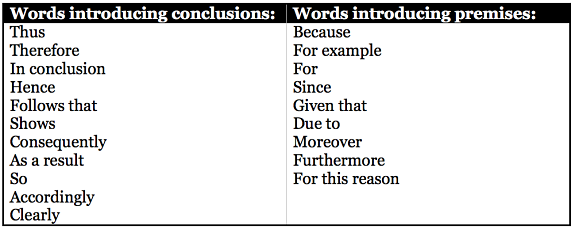If You’re Studying for the LSAT, Memorize This List of Vocabulary Terms
- by
- Apr 04, 2024
- General LSAT Advice, LSAT
- Reviewed by: Matt Riley


In an episode of Bob’s Burgers, Tina spends all night practicing a song and dance for her book report on Call of the Wild (which she didn’t read).”You’ll be fine,” says Tina’s mom. “Just remember all the steps … memorize all the lyrics … and don’t mess it up.”
For the most part, prepping for the LSAT has a lot in common with practicing for a report on a book you didn’t read. You’ll be a lot better off working through LSAT questions (or just doing the reading for your book report) than you will be trying to take shortcuts.
In the case of the LSAT, the main exceptions are a limited number of key LSAT vocabulary terms and concepts that will be important to memorize in order to do the actual work of LSAT studying. It’s like learning to read before you do your book report reading. It doesn’t take the place of your deeper work at all, but it’s the very first step.
If you are a brand new LSAT student, the list below is a necessary (though maybe not sufficient) list of words you should memorize and understand for your LSAT study.
💡 These would also be great on LSAT flashcards! Build your LSAT vocabulary with a free LSAT flashcard deck from Blueprint LSAT!
Premise/Conclusion Indicator Words
These are terms that signal the premise or conclusion of an argument. For example: “Since Tina didn’t read for her book report (premise), it follows that she must improvise (conclusion).”
- Words Introducing Conclusions:
- Thus
- Therefore
- In conclusion
- Hence
- Follows that
- Shows
- Consequently
- As a result
- So
- Accordingly
- Clearly
- Words Introducing Premises:
- Because
- For example
- For
- Since
- Given that
- Due to
- Moreover
- Furthermore
- For this reason
These indicator words will help you to dissect and evaluate arguments, by showing you how the same premises and conclusions can be presented in different ways. With different indicator words, the same premise and conclusion above can be re-written as “Clearly, Tina must improvise, because she didn’t read for her book report.”
Sign up to get expert tips and exclusive invites to free LSAT classes and law school admissions workshops!
Conditional Words
These are words indicating the sufficient or necessary condition of a conditional statement, as in “If Tina learns to tap dance (sufficient condition), then she will get an A on her book report (necessary condition).”
- Words Introducing Sufficiency:
- If
- When
- In order to
- Every
- Each
- All
- Any
- Words Introducing Necessity:
- Then
- Must
- Needs
- Requires
- Always
- Only
- Only if
So the same example above can have different order and indicator words, and still have the same meaning: “In order to get an A on her report, Tina must learn to tap dance.”
These are not the only conditional words. There are many, many more. But in general, if a word works the same way as “if” or “all,” it introduces sufficiency. If a word works the same way as “only” or “necessary,’ it introduces necessity.
Causal Words
These are words that indicate a causal argument, which reasons that one event is caused by a correlated event. For example: “Tina forgot the words to her song-and-dance performance, and she failed her report. Therefore, Tina’s failure was caused by her forgetting the lyrics.”
- Words Indicating a Causal Argument:
- Because of
- Caused by
- Reason for
- Leads to
- Responsible for
- Was a factor in
- Contributed to
- Due to
- Produced
- Resulted in
Using different words, the same causal argument may be structured as: “Forgetting the lyrics was the reason for Tina’s failure. She forgot the lyrics, and then failed her report.”
More LSAT Resources
📝 Download free LSAT Cheat Sheets for every section of the test with more key words and concepts.
Logical Force
Logical force LSAT vocabulary are terms that can make an argument stronger or weaker. Example: “Tina will be ready to present her report,” is stronger than “Tina could be ready.”
- Strong Logical Force
- Will
- Must
- Shall
- All
- Every
- Does
- Always
- Are
- Moderate Logical Force
- Most
- A majority
- Usually
- Probably
- Generally
- Weak Logical Force
- Some
- May
- Could
- Occasionally
- Might
When you’re beginning your LSAT prep, it may seem impossible to memorize the LSAT vocabulary words above in any way that will be useful on the exam. However, as you progress through LSAT concepts, you’ll grasp how each of these words is meant to highlight a certain structure on your exam questions. Memorizing each of the words in the above categories will aid you in understanding the structure each type of word is framing.
Want to apply these LSAT vocabulary words into practice? Create a free Blueprint LSAT account to get access to a free practice LSAT exam to practice your logical reasoning skills!
Want more advice from LSAT experts on all the LSAT sections? Come learn from us in a Blueprint LSAT prep course! Whether you have the discipline to study on your own with a Self-Paced Course, want to navigate the LSAT with instructors in a Live Course, or prefer one-on-one attention through tutoring, we have the study method that fits your learning style.
Search the Blog

Free LSAT Practice Account
Sign up for a free Blueprint LSAT account and get access to a free trial of the Self-Paced Course and a free practice LSAT with a detailed score report, mind-blowing analytics, and explanatory videos.
Learn More
Popular Posts
-
logic games Game Over: LSAC Says Farewell to Logic Games
-
General LSAT Advice How to Get a 180 on the LSAT
-
Entertainment Revisiting Elle's LSAT Journey from Legally Blonde












